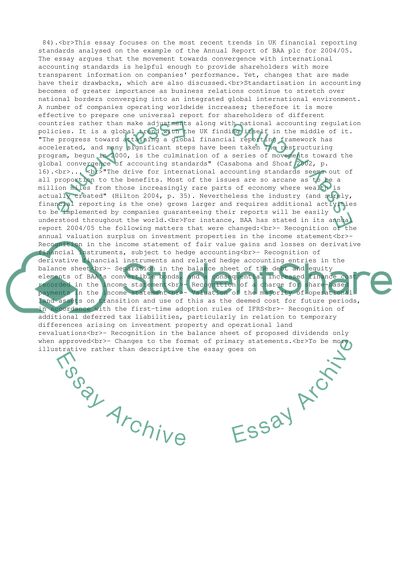Cite this document
(The Movement towards Convergence with International Accounting Standards Essay Example | Topics and Well Written Essays - 2250 words - 1, n.d.)
The Movement towards Convergence with International Accounting Standards Essay Example | Topics and Well Written Essays - 2250 words - 1. https://studentshare.org/business/1505774-the-movement-towards-convergence-with-international-accounting-standards
The Movement towards Convergence with International Accounting Standards Essay Example | Topics and Well Written Essays - 2250 words - 1. https://studentshare.org/business/1505774-the-movement-towards-convergence-with-international-accounting-standards
(The Movement towards Convergence With International Accounting Standards Essay Example | Topics and Well Written Essays - 2250 Words - 1)
The Movement towards Convergence With International Accounting Standards Essay Example | Topics and Well Written Essays - 2250 Words - 1. https://studentshare.org/business/1505774-the-movement-towards-convergence-with-international-accounting-standards.
The Movement towards Convergence With International Accounting Standards Essay Example | Topics and Well Written Essays - 2250 Words - 1. https://studentshare.org/business/1505774-the-movement-towards-convergence-with-international-accounting-standards.
“The Movement towards Convergence With International Accounting Standards Essay Example | Topics and Well Written Essays - 2250 Words - 1”. https://studentshare.org/business/1505774-the-movement-towards-convergence-with-international-accounting-standards.


